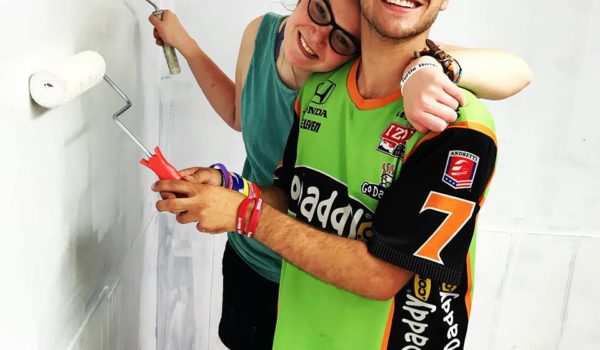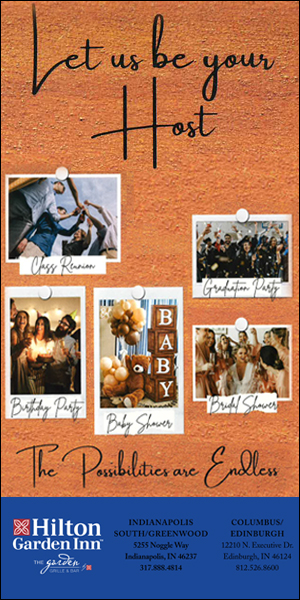
By Katie MacDonell
The Alex and Ali Foundation provides resources for autistic youths
Every year, tens of thousands of adolescents with autism become adults. Jennifer Parker and her husband, Andrew Parker, established The Alex and Ali Foundation in 2014 in response to an emerging need they noticed. Some autistic young adults, including their son, Alex, completed high school only to discover that after that, once that milestone was completed, services and resources thinned out.
The Parkers intended to create a space for those young adults with developmental disabilities who maybe didn’t want to go to college or day programs, but still wanted to engage, socialize and learn hands-on job skills.
“We don’t want them sitting at home watching TV, playing on the computer, going on Facebook and not contributing to society, because we know they have something to offer,” says Jennifer Parker, The Alex and Ali Foundation president. “We also feel strongly that the world needs them. They need to be an integral part of our community. People need to be around them because they make our community a better place.”
Job skills, community involvement
Five years strong, The Alex and Ali Foundation is a growing nonprofit organization based in Greenwood. It is named in honor of Alex and his best friend since second grade, Ali Callahan. With the help of donations, volunteers, grants and an annual fundraising gala, the foundation seeks to provide young adults with developmental disabilities with job skill development opportunities, vocational training and meaningful community involvement.
Their mission takes on many forms depending on individual interests. The two dozen young adults who participate, who are called “team members,” jump into various job skill undertakings in all kinds of settings. Some team members work in animal care or food pantry volunteering, while others spend time working on farms, organizing warehouses or landscaping properties. The foundation connects the team members to community partners who offer ever diversifying vocational tasks.
Tapping into talent
Beyond providing job skill training, the foundation helps team members tap into their creative potential. With the help of talented guest volunteers, these young adults learn all sorts of artisan crafts, like jewelry making, painting, sewing and leather making. Other interests that are pursued include baking, pet care, mosaic tile art and refinishing furniture.
“It’s really about people seeing our young adults out and about and in action,” says Parker. “It’s also about seeing what they’ve created and saying, ‘Wow, look at what they’ve done. That person has talent.’”
The Hope Gallery, located in downtown Bargersville, is where most of the artistic magic is made. This is the foundation’s first venture: a gift boutique that features handmade goods. There, team members learn retail skills as they pair with volunteers for three-hour shifts, working together as they run the business. Team members acquire skills such as processing inventory, handling cash transactions, providing customer service, advertising online and other retail operations.
The art pieces and handmade goods sold at The Hope Gallery are made by the team members, as well as vendors with and without special needs from Indiana and out of state. Parker says that their goal is that within five years 80 percent of what they sell in the gallery will be made by adults with developmental disabilities. The boutique’s motto is “Wonderfully Made, Perfectly Unique,” which they say describes both their products and their team members.
“I think everybody who comes in feels good about their purchase,” says Kristin Gurley, The Hope Gallery coordinator. “It’s not a place that you have to go and spend a ton of money to make a difference. It’s been a really positive experience and a really positive reaction from the community.”
Local artists come into the gallery to help team members create items to sell and gain a creative skill. A recent make-and-take event there featured a leather artisan who helped participants made dyed leather bracelets, wallets, pouches and luggage tags that they could then take home or sell in the shop. At these types of events, the young adults not only learn but also get to teach the skills to visitors and volunteers present.
Dakota Skiles is a team member who goes into The Hope Gallery weekly. There he makes tiled crosses, works shifts running the boutique and plays music on his guitar.
“My favorite thing is running the cash register; it’s really cool,” says Skiles. “I like talking to the people, and I like how the door opens up automatically after you hit ‘cash,’ that kind of thing.”
For Skiles, The Hope Gallery is more than just a place where he can learn job skills; it’s a place for meaningful connections.
“I have some friends come and Jennifer’s son Alex, he comes and helps out, too,” says Skiles. “We do a good job working together. We have fun.”
The gallery is named after another of the Parkers’ five children — and Alex’s younger sister — Hope, who against all odds has survived life-threatening medical circumstances.
“By giving them a place to flourish, these young adults are having this profound impact on everyone who comes into contact with them,” says Gurley. “People are happy at our store. They’re smiling. It’s different than just a regular boutique. It is a different feel. It’s a happy place.”
Gurley says volunteers have reported experiencing lifts in their mental health and finding a newfound purpose after spending time with the team members at the boutique.
Outside the gallery, team members of The Alex and Ali Foundation actively participate in community events, such as art and trade shows, farmers markets, various fundraisers and panel discussions at schools. During school visits, young adults from the foundation answer questions and facilitate open discussions about their lives as they teach students how to make something creative.
After one panel discussion, Parker overheard a third-grader telling his friend just how cool he thought Alex was. “That’s what we want,” Parker says. “They’re realizing these young adults are not their diagnosis. They are people. They are individuals that are unique, fun, caring, kind, compassionate and really cool.”
Moving forward, The Alex and Ali Foundation plans on adding more ventures to reach as many young adults as possible and continue fulfilling their mission. Parker says that the foundation is expanding rapidly and can always use more volunteers for its events.


